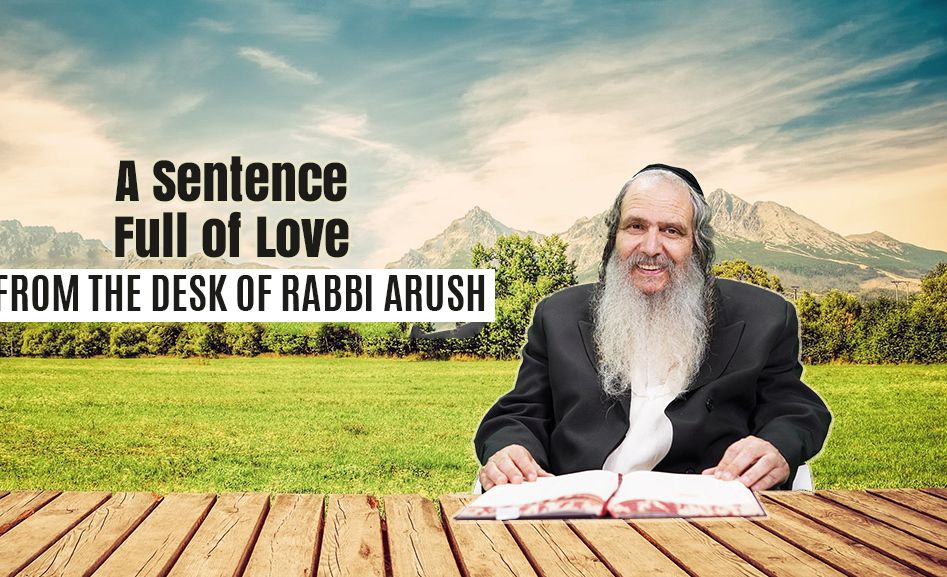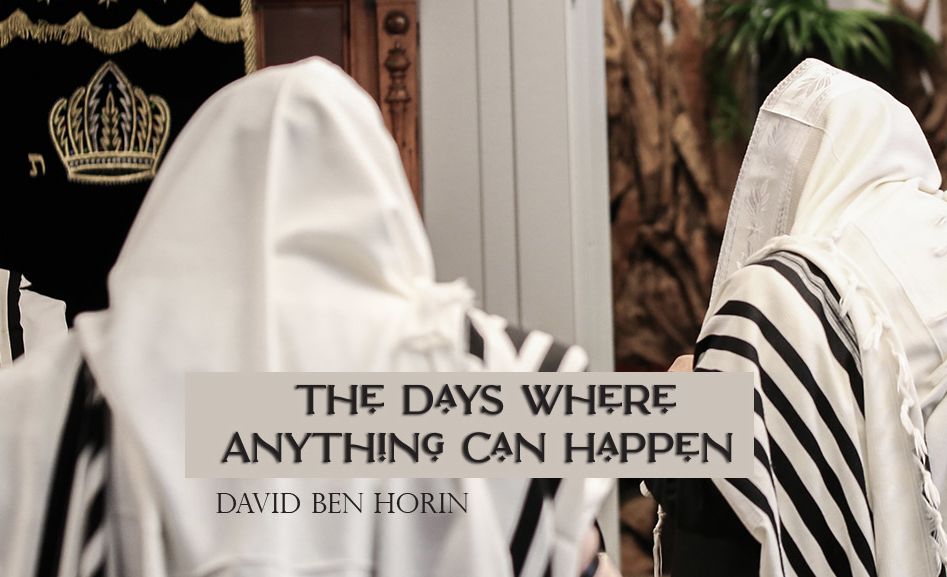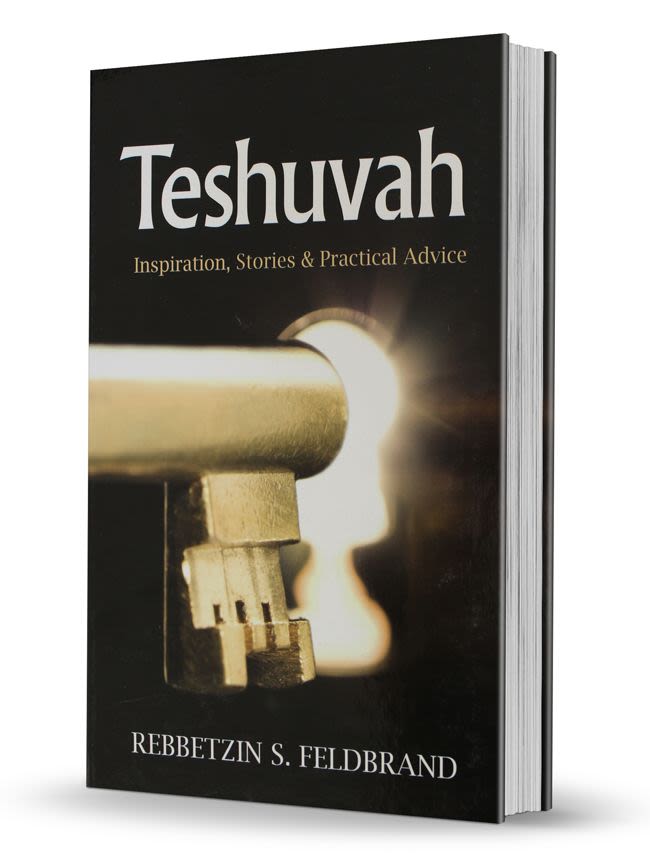
A Relationship With G-d
Imagine for a moment that you are four years old. Your parents are everything to you. Consider the terror you would feel thinking they have abandoned you..

The ten days of Rosh Hashanah through Yom Kippur are call the “Days of Awe”. It is the time of year when we talk with G-d.
Yes, we are supposed to talk with G-d all year long, but we really feel it on Rosh Hashanah and Yom Kippur. These are days devoted to prayer. They are days when we struggle to express our thoughts, our hopes, and our fears to the Almighty. These are days when we try to engage the Master of the Universe in conversation.
We hope that the Almighty smiles on us, grants us our requests. But here is a particularly searing question that we must confront at this time of year: What happens when He doesn’t? What, if anything, is left of our relationship with G-d then?
Imagine a woman who prays deeply and sincerely for the success of an operation on her severely ill 6-year-old daughter. The time comes and the operation fails. The girl dies under the surgeon’s knife. What is a mother to feel after this?
What would we feel?
In the swirl of emotions following a tragedy, one feels indescribable anguish, the terrible, searing pain of overwhelming loss. But sometimes, one feels something else too.
Betrayal.
At first, the feeling might be unidentifiable, hidden underneath layers of sadness and pain. But then, slowly it might emerge. “How could G-d have done this? We trusted in Him. We prayed with all our might. We placed our every hope in His Hands. And He let this happen…”
And these questions, spoken or unspoken, then provoke a completely new swirl of emotions. Fear. Guilt. “Who am I angry at?” We ask ourselves, “G-d? How can I be angry with G-d?”… We’re not supposed to be angry with G-d. We’re supposed to feel that He’s compassionate, loving. One cannot easily “make up” with someone one feels has betrayed him; how, then, can we expect to love G-d if one feels betrayed by Him?
I don’t know if there is a single, definitive, way out of this problem. Perhaps the answer differs from person to person. But I think a change in perspective can begin to point in a useful direction:
We can ask a fundamental question: When one prays to G-d for something, be it for health, happiness, or even for a new car, what is it that one hopes to achieve? What does one hope the prayer will accomplish?
On one level, the answer is obvious. One hopes that G-d will bequeath to him that which he prays for. If one prays for his daughter’s recovery from a terrible illness, for example, one obviously hopes that this will somehow help her recover. But there is, I think, a deeper aspect to the meaning and purpose of such a prayer.
Allow me to relate a story a friend of mine tells about one of his early childhood experiences. This is how he relates the event:
“When I was about four years old, I awoke from my nap one day, ventured out of my room, and walked through the house. No one was there. I tentatively called out for my mother, but there was no reply. Slowly, a realization dawned on my little mind: ‘It’s finally happened. My parents have abandoned me…’
“I raced to the phone on the kitchen wall and dialed the operator. ‘That’s it,’ I told her, between sobs, ‘my parents are gone; I’m all alone now.’ The operator stayed on the phone with me until, sure enough, my mother did come home. She had slipped out for a few minutes to pick up some milk. It was, however, an experience I shall never forget.”
Now, if you will, perform a little mental exercise. Imagine for a moment that you are four years old. Your parents are everything to you. Consider the terror you would feel thinking they have abandoned you, leaving you to somehow manage life on your own. Of course, as an adult, you know that this would never happen. However, as a child, you would not have known this. The threat would have seemed real. How does that terror feel?
Now, proceed further. Imagine you are six years old. Climbing on a chair, you have found your mother’s cookie jar on the kitchen counter. It’s filled with chocolate-chip cookies. You approach your mother, cookie jar in hand, and ask her for one. Now consider the following two scenarios:
SCENARIO A
Your mother kindly and lovingly looks at you and says: “No, dear, I’m sorry. It’s not time for a cookie now; it’s too close to dinnertime. As much as I know you’d like to have it, I can’t give it to you right now.”
SCENARIO B
Your mother has had a very hard day, and is at wit’s end when you have approached her. She stares at you a little coldly for a minute. Then she turns and walks away. “I don’t care,” you hear as her voice trails away, “Your little cookie doesn’t matter much to me at all right now. If you want it, take it.”
As a 6-year-old, which of the two scenarios would you rather have faced? In the first, you are denied the cookie; but you get the loving attention of your mother. In the second, you get your cookie, but a gnawing pit swells in your stomach. In some small way, your mother has abandoned you…
Let us continue. Imagine that you are older now. You and your spouse live in a small apartment. Unfortunately, your financial situation is bleak; you cannot afford to buy yourselves even a small, used car. Even routine grocery shopping has become an ordeal. Your husband’s employer, however, has hinted he may be in line for a raise, enough, perhaps, to allow you to afford a vehicle.
So you pray to G-d with added devotion, and ask for this raise to come through. We, of course, have no way to directly perceive how G-d accepts our prayers. But for the sake of argument, let us imagine that you could somehow “hear” His response. Imagine, again, two scenarios:
SCENARIO A
G-d responds to you: “My child, I want you to know that I am with you. I know the stress you feel due to your financial situation, and I feel your anguish. But for reasons I cannot now reveal to you, it is not within the scheme of things for your husband to receive this raise.”
SCENARIO B
G-d responds to you: “In the past, you have not displayed enough faith for Me to take your concerns seriously right now. I choose not to involve Myself in your plight; I shall allow events to unfold as they would on their own. If your husband’s employer decides to give him the raise, then so be it; but I will not be involved.”
Again, which would we prefer to hear? The first response firmly but gently denies our request, whereas the second leaves open the possibility that we will indeed get the money. But in the second response, we also feel the hard, cold shock of G-d abandoning us. If we do get the money, what price will we have paid?
And now, finally, consider a last situation. A man suffering the effects of leukemia is wheeled into the operating room for a last-chance operation to save his life. The doctors give him barely fifty-fifty odds. As he feels the anesthesia begin to take effect, he realizes quite clearly that this may be his last moments of consciousness on Earth. He opens his heart to G-d and prays that he will survive.
Imagine that in his last fleeting seconds of consciousness, this man would be privileged to hear G-d’s response to him. Consider, again, two scenarios:
SCENARIO A
G-d responds to him: “My child, I want you to know that I am very close to you now. As you drift into sleep, I shall stay by your side, and I shall not leave you.
“I feel your anguish, and I know how much you want to live. But I must tell you that now is the time I have chosen for you to end your stay on Earth. You cannot understand why. But now, My child, is the time.”
SCENARIO B
G-d responds to him: “You have not made yourself worthy of My becoming intimately involved in your affairs. The doctor who is operating on you is as competent as any; I shall leave your fate in his hands.”
In his final waking moments, which response would the man rather hear? Is it not conceivable, even probable, that he would prefer G-d’s intimate and loving denial of his request, than G-d’s cold withdrawal from his life? If so, if this is what we would feel were we in this man’s situation, then we may have discovered something truly profound about our values: An intimate relationship with our Parent in Heaven is something we would trade anything for even life itself.
This, then, says something important about why we pray, and what we get out of the experience.
Yes, it is true that we pray for the cookie, the car, or indeed, for our very lives. But these are only the apparent purposes of our prayers. For when we truly open our hearts to G-d, when we genuinely reach out to Him in our times of need, we make G-d real in our lives. We build a relationship with Him.
As in any good relationship, feelings tend to reciprocate. Our connection with G-d is no different. When we reach out to Him, He reaches back to us. Each word of prayer becomes a brick in the edifice of that relationship. And when all is said and done, we value that relationship more than anything.
I think that when we truly understand this, we have given ourselves the tools to deal with the possibility that G-d may not, in fact, grant us the object of our prayers. For we can realize that the more profound our need, the more deeply we have fashioned a relationship with our Creator by telling Him about it. Thus, whether we receive what we have “asked” for or not, we have certainly not been “betrayed” by G-d. A refusal can be loving, too. And the relationship we have built by asking has not gone away.
We live in a flesh and blood world, and this is a difficult truth to internalize. Our needs are real to us. We really do want the cookie or the car; our heartfelt desire for the object of our prayer is not simply imagined. However, if we pause for a moment, we can focus on the deeper things, too. Through our heartfelt communication, we have drawn closer to G-d, and He has drawn closer to us. And as we sense this closeness, we may find that we have not only achieved a deeper appreciation of prayer, and of these Days of Awe, but we have also gained newfound strength to deal with whatever response G-d ultimately bequeaths us.












Tell us what you think!
Thank you for your comment!
It will be published after approval by the Editor.